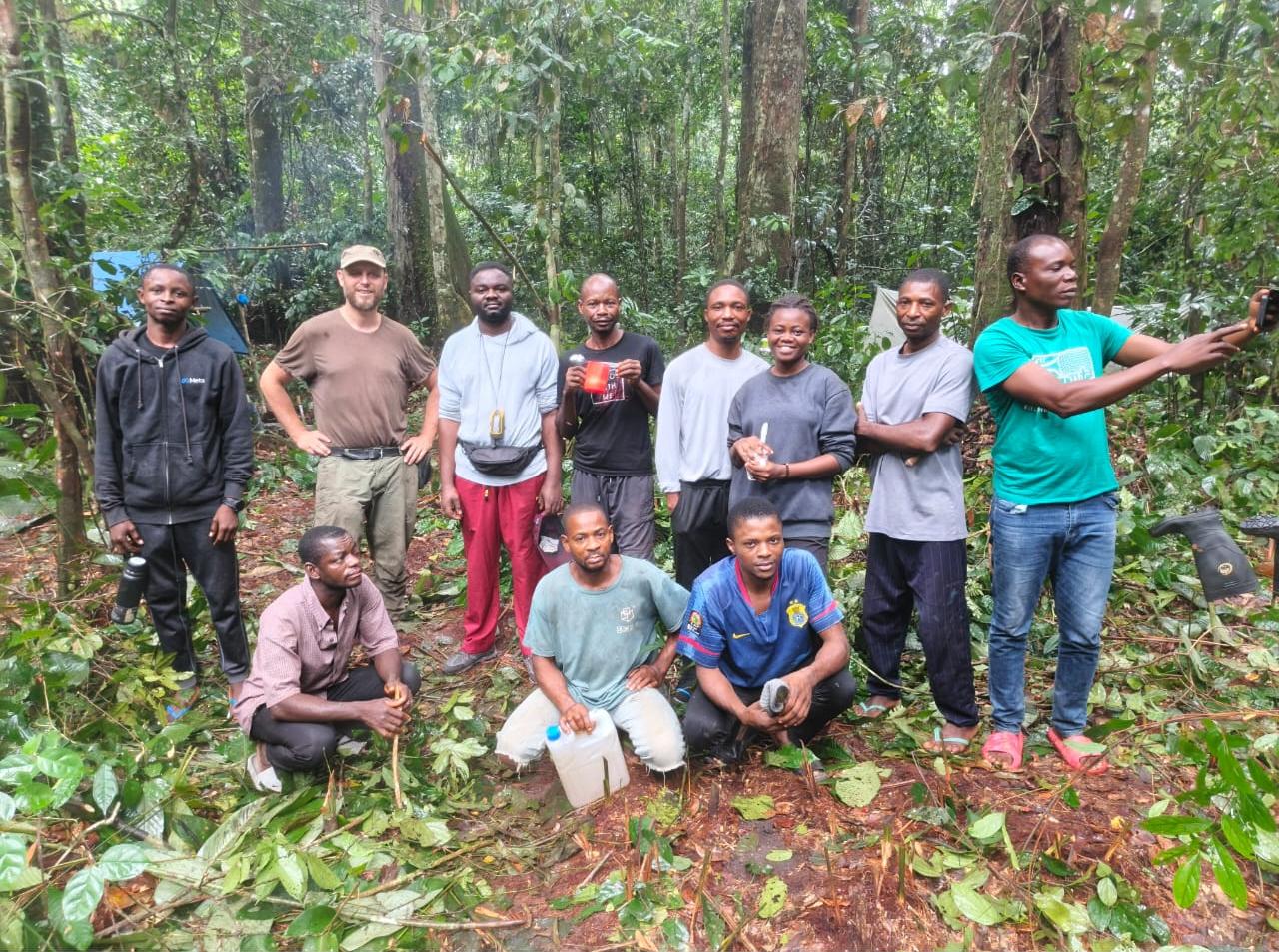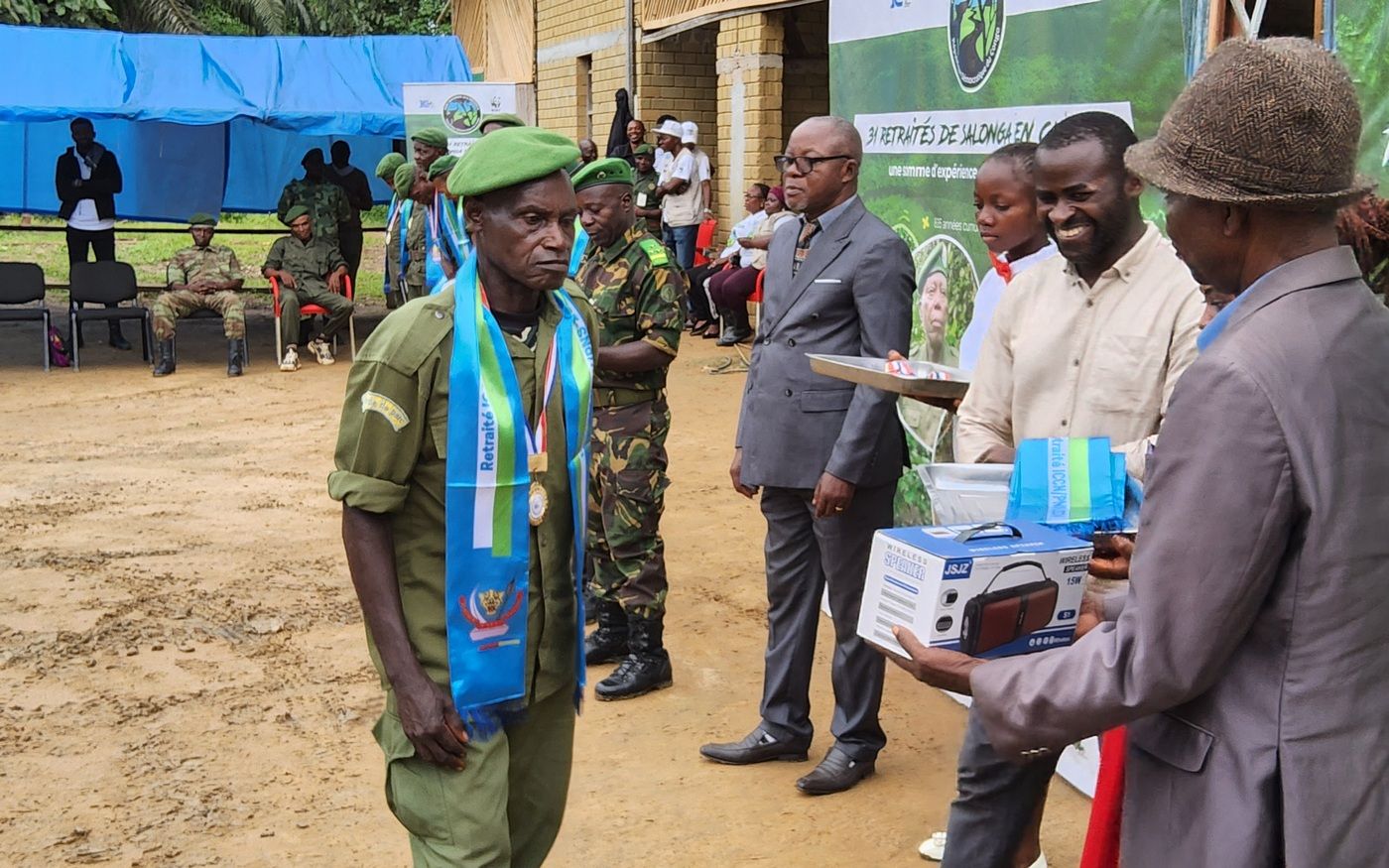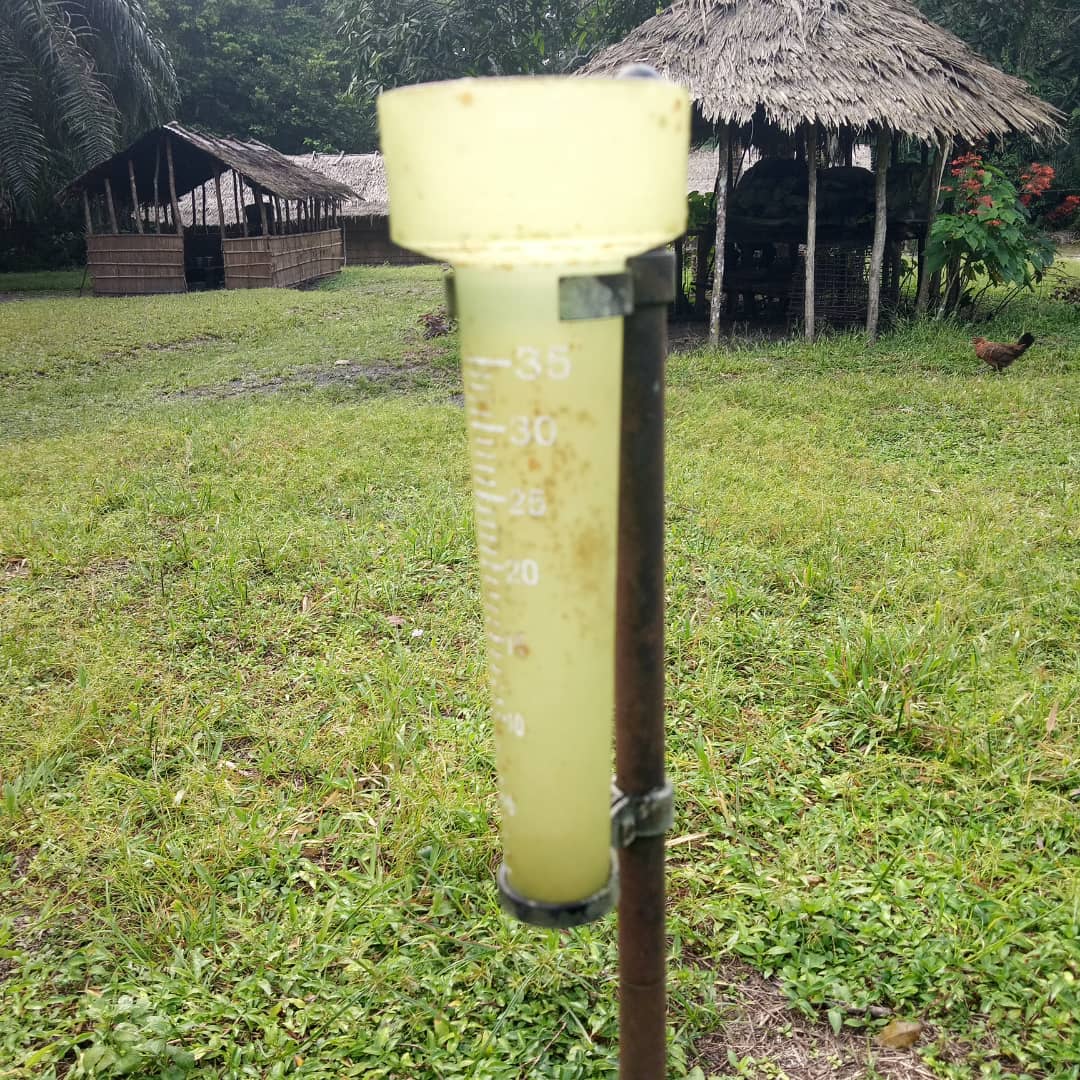Eco-guard - Not an easy job
Salonga is the largest National Park of the Democratic Republic of Congo (DRC), as large as Belgium and Luxembourg combined.
273 eco-guards are employed by ICCN (the Congolese Institute for Nature Conservation) for the surveillance of this vast area. Due to Salonga’s remoteness, most of the employed eco-guards originate from the surrounding villages. Being an eco-guard is a respected profession and it provides at least a small but regular income. However, it’s a risky and often dangerous job.
To be in a position to appropriately counter these challenges, a good and solid professional basic training followed by more specialised ones is necessary for all eco-guards at regular intervals.
The Salonga Park Management Unit has found a partner for eco-guards trainings, Chengeta Wildlife, an international NGO which follows an integrated approach.
Although it is important to have a good command of the basics (navigation in the forest, tracking, wildlife laws and duties as well as and human rights laws) and to have internalised them, a holistic training includes the emphasis of the importance of good communication at eye level between local communities and the eco-guards for the benefit of the community and the protection of the Park.
Participants reflect on their experience
Two participants share their thoughts:
Janine Bule Iyolo, 42, has been working as an eco-guard for 15 years and is one of the few female rangers. After a basic training, she received a specialised one and is now particularly involved in data collection and analysis.
Her motivation to commit herself to the Park every day and to risk her life is her “love for nature”, as she says, “the park is a natural heritage and one of the last green lungs of our planet”, which must be protected.
The training is important for her because, “the eco-guard training helps us to understand what we can do for conservation, it also helps us to improve our understanding of the concerns of the communities in order to better support them and raise their awareness [for conservation]”.
Janine says the greatest potential to protect the Park lies in the collaboration with the communities: “Raising community awareness is the most effective weapon against illegal wildlife trade “.
However, therefore it is necessary to “involve the communities in nature conservation” and to support the people by “implementing micro-projects for rural development, also with the aim to improve the relationship between eco-guards and the community, which is important because the eco-guards are also part of the community“.
For Salonga, she hopes that “more people will be trained so that the people who live here will be able to protect the Park by their own efforts and understand how important biodiversity is for mankind.”
Her colleague, Jules Bondombe, shares Janine’s view. He was a primary school teacher before he took a job in the park as an eco-guard 12 years ago. He is now the leader of a mobile patrol unit.
He also considers the cooperation with the population to be particularly important: “Alternative livelihoods must be provided for the population“. The greatest challenges, according to Jules, is to improve the living conditions of the Park’s neighbouring communities, but also the working conditions of the eco-guards.
However, he already sees some positive changes: “About ten years ago, the approach to nature conservation was really just ‘police work’. Today, respect for the law and in particular human rights define the framework of our work. I think I have contributed a lot to this change because we eco-guards are full members of the community. It is therefore important to respect human dignity and human rights.”
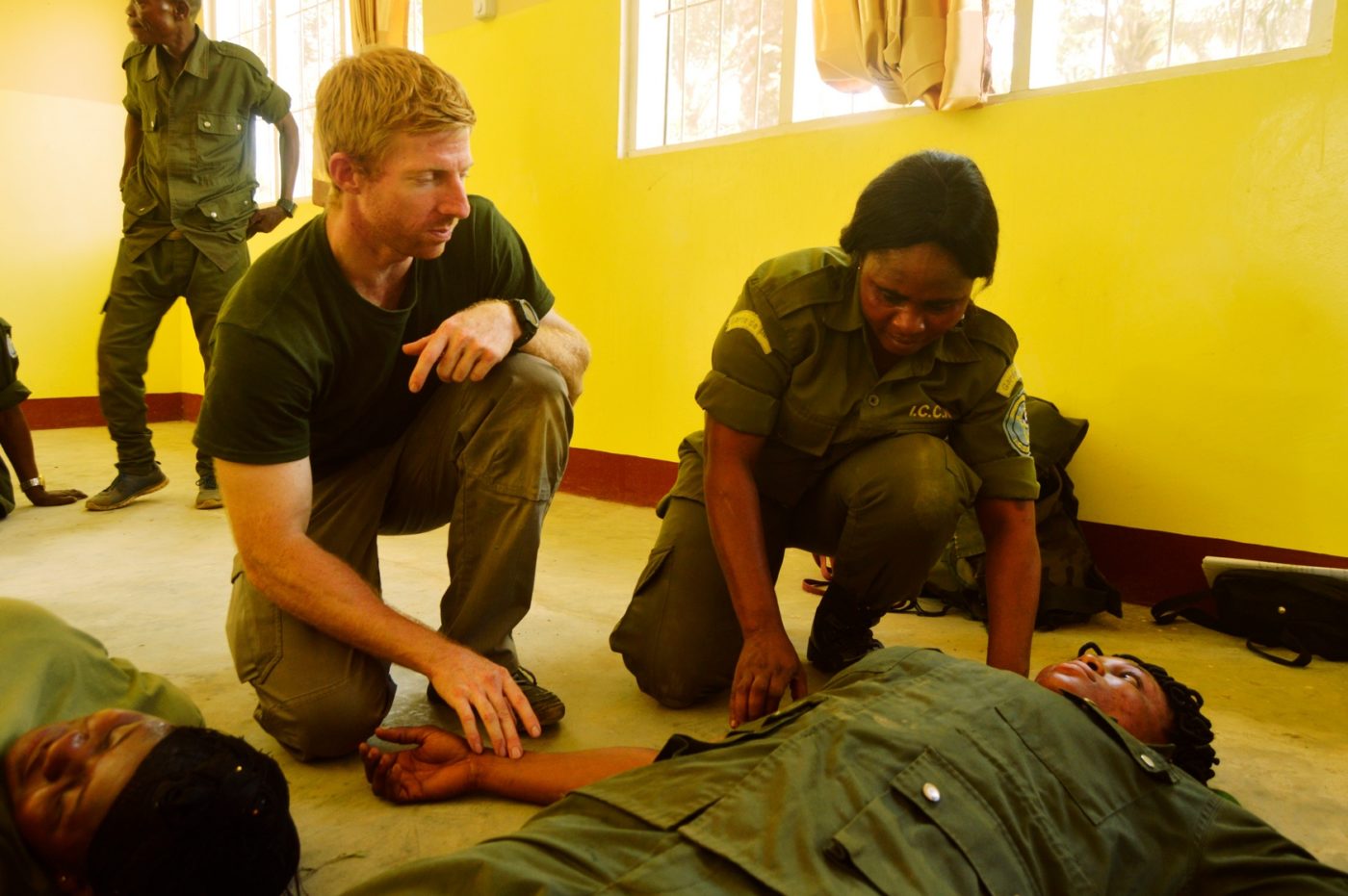
The Chengeta Wildlife approach
Chengeta Wildlife (CW) is a non-governmental organisation that has been working in the field of eco-guard training since 2014. The philosophy of Chengeta Wildlife is to develop sustainable solutions to protect the integrity of important natural ecosystems, wildlife populations and the human communities that depend on them.
Chengeta Wildlife strives to provide knowledge and skills that will enable anti-poaching units to maintain and perfect their skills after the departure of the trainers. This approach enables the eco-guards to increase their overall effectiveness and build programmes that last over time.
In addition to providing anti-poaching training, Chengeta works with partners such as WWF to implement long-term conservation and sustainable community development programmes.
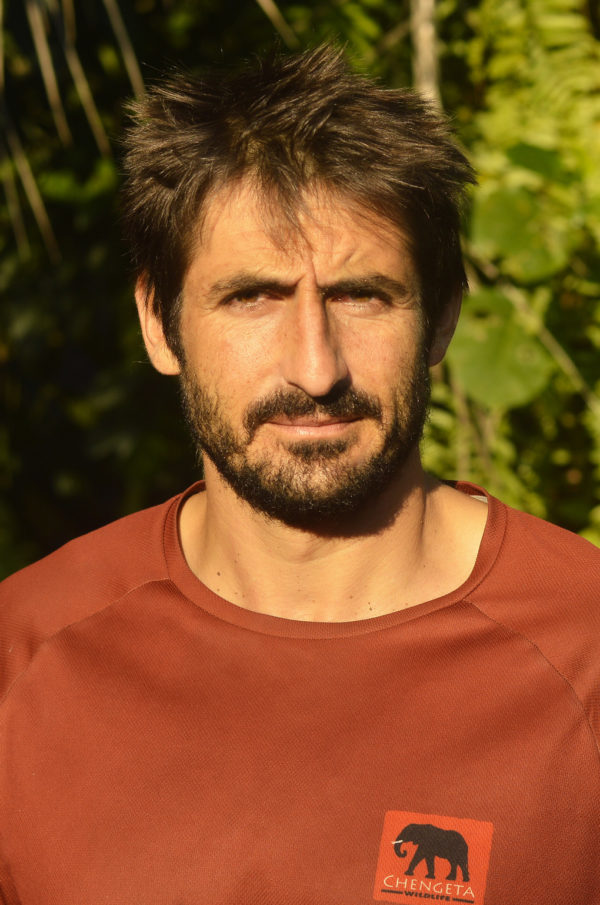
Yoann Galleran, Chengeta Wildlife trainer
Yoann Galeran, one of Chengeta’s senior trainers, spent several months on site in Salonga and led the mentoring and monitoring programme. This ensures that the learned content is being integrated into the eco-guards’ daily work.
“The training of eco-guards in Salonga is not limited to a one-time training programme, but accompanies eco-guards in the preparation, implementation and follow-up of the patrols. Even during the Covid-19 crisis, the trainers continued their mission, in compliance with the hygiene and national social distancing regulations , by guiding and carrying out patrols with the eco-guards to ensure the application of principles and rules in the field,” says Yoann, who has a master’s degree in rural development and development cooperation, is a certified instructor of outdoor and survival techniques and who lived and worked with indigenous peoples in Australia, South America, Laos and the Philippines for more than 10 years.
When asked what the difference of Chengeta’s training concept is compared to others, Yoann answers:
“CW creates an adapted, realistic and interactive training that enables the eco-guards to think and act in the field in a way that is adapted to different situations, as well as conveying the ability and passion to learn.” Like the Eco-guards themselves, he judges one of the greatest challenges to be “reconciling the protection of the rainforest and its species with the well-being of the local population”.
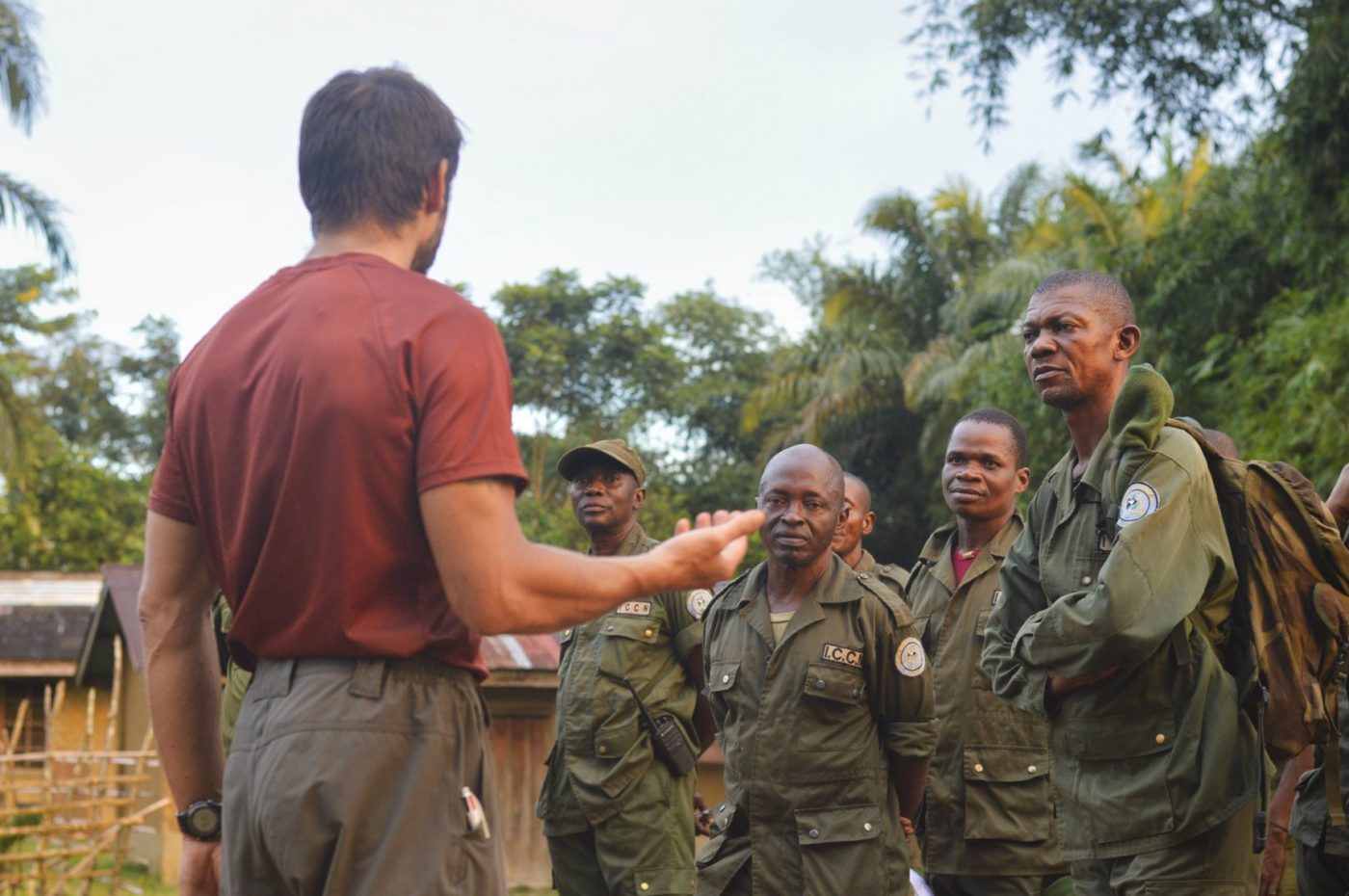
Cooperation, trust and self-esteem
Chengeta deems working with local communities as the cornerstone for any success in curbing illegal wildlife trade. Mutual understanding and trust must grow, but this takes time. In an area the size of an entire country, patrolling is like looking for a needle in a haystack. The combination of biomonitoring data, knowledge about hunting and transport routes through the dense rainforest as well as information from the villages can contribute to focus the search.
It is therefore necessary to cultivate a flow of information between the communities themselves and the eco-guards, especially regarding poaching and illegal wildlife trade, but also about the presence of armed groups that threaten both the local population and eco-guards. This requires a high level of experience, as it is sometimes challenging to build trust with the communities, he continues. However, this is precisely the declared aim: creating trust through education, sensitization and cooperation between eco-guards and the local population.
Appreciation of the work of eco-guards is also an important aspect of the training. “As a trainer I am trying to bring inspiration to the rangers, by being an example to them. My main focus is also to show them a lot of respect and gratitude for the work they’re doing, which is often underestimated, or even neglected.” Yoann adds.
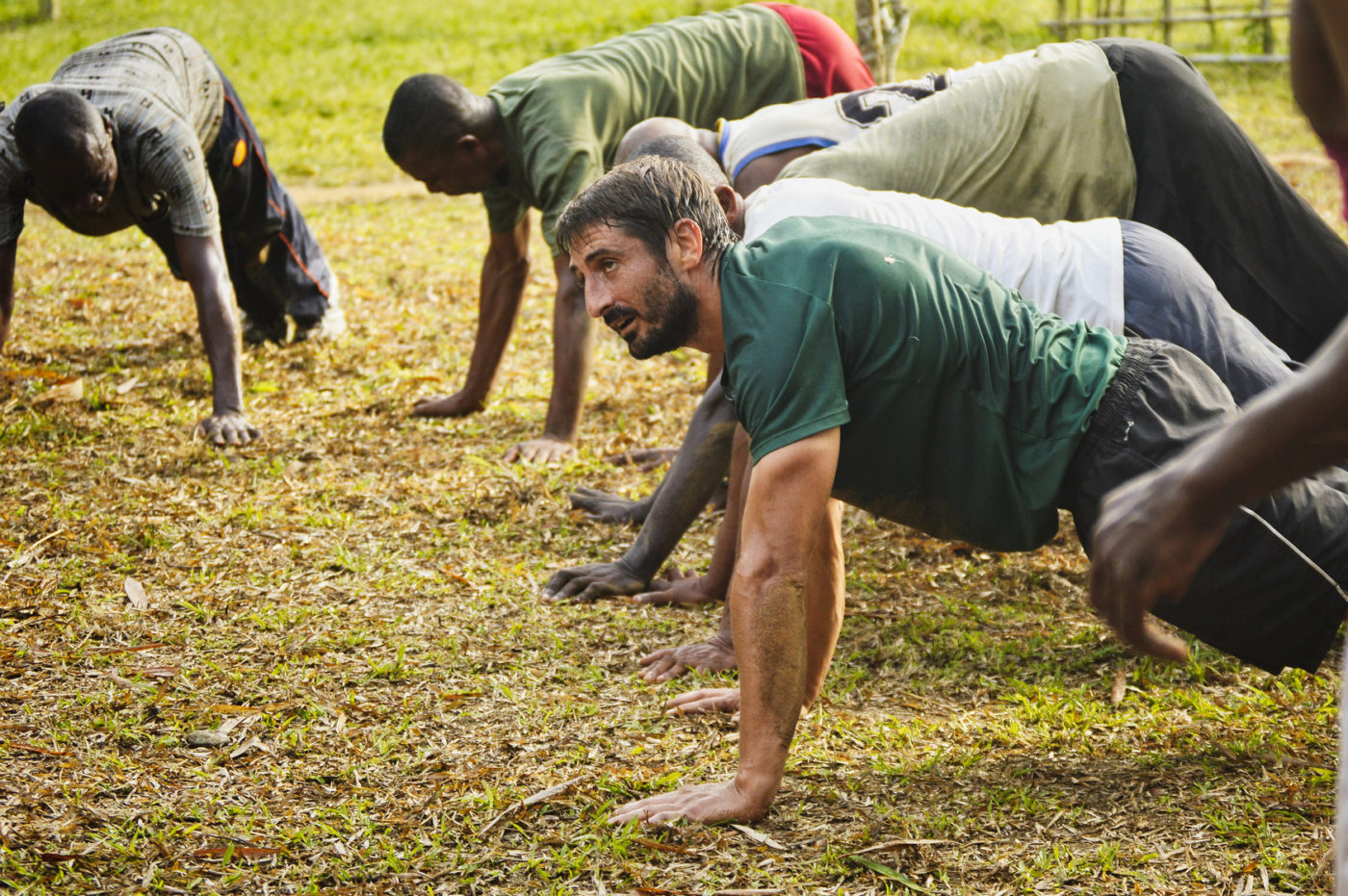
“During our training we felt the buildup of that pride by understanding the whole concept of what is an eco-guard, the importance of their work at every scale, and the importance of a good professional attitude towards others. We involved eco-guards in a process in which we give responsibility as far down in the team, group, and organization as possible. This method promotes creativity and autonomy at many levels.”
After a suspension of the training in April 2020 due to COVID 19 and following a successful evaluation of the first phase by ICCN, Chengeta Wildlife resumed training all eco-guards on human rights, legal and professional ethics, safety and patrol skills, and confidence building to work better as a team and in collaboration with the local and indigenous communities. Over 250 eco-guards have been trained to date.

